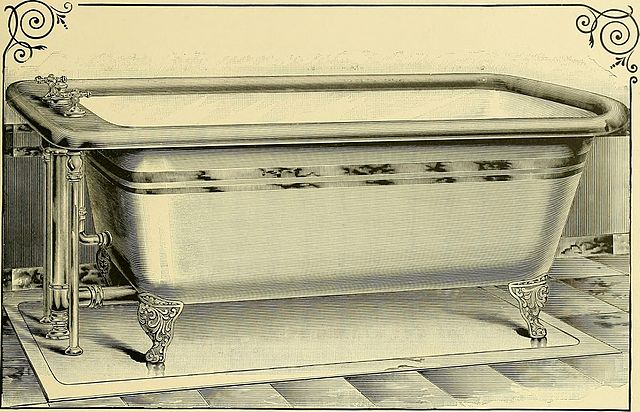
Victorian and Edwardian boys could send confidential questions to the Boy’s Own Paper and look for responses in the “Answers to Correspondents” column:
- “We are not sure of the colour of the South-Eastern Railway Carriages. The paint is rarely visible owing to the thick covering of dirt by which it is concealed.” (July 28, 1888)
- “Your insect was smashed in the post, but we have identified the fragments as those of Cetonia aurata, the common rose-beetle. Next time you send us a specimen, put it in a box.”
- “You cannot safely treat rupture yourself.” (July 1888)
- “It is extremely unlikely that Victor Hugo would ever answer any of your letters, even if we forwarded them. He has been dead quite some years.”
One of the editors, Scottish physician Gordon Stables, seemed to have a particular favorite remedy for health questions:
- “Rise not later than 7 and cold tub immediately. In very cold weather massage yourself all over before turning out, and then with the rough towel after the cold tub. Breakfast at 8, but only after ten minutes in the open air.”
- “Swimming in winter (Mac.). — Few can stand it, but judge for yourself if you can get a good reaction. Dr. Gordon Stables tells us that he joined his swimming club in December when a student. Keeps it up all the year round. Has swum for his life with his heavy clothes on in the Arctic regions. Took no hurt. Others might.” (January 1905)
- (To a girl who “wanted to get strong like the boys”:) “You have tried the really cold tub and the B.O.P. dumb-bell exercises every morning before breakfast, my dear?”
When one boy said he longed for a fine pair of whiskers, he was told that “a really cold tub” was his only hope. A New Zealand reader who asked for something to help his nerves was advised to “take plenty of exercise in the open air and a cold tub every morning before breakfast.”
What if there was no tub in the house? “Douche yourself regularly 365 days a year in the mornings on rising, and 366 in any Leap Year, with 30 sponge loads of the coldest water obtainable. We presume there is somewhere around where you can do this with discretion.” (Footnote: “The water must be really cold.”)
To a boy in Northern Ontario: “On no account should you ever cut a circular hole in the winter ice to get a cold tub. You would certainly freeze to death very quickly but it is also probable you might well provide a tasty meal for some hungry seal lurking below. In your case, wait for the spring thaws.”
Stables didn’t mince words. In 1905 he wrote, “The children of the wealthy and well-to-do in cities are apt to be spoiled by pampering and coddling and over-feeding. Cargoes of such little fat boys would sell well in some parts of new Guinea, but in this country they do not assist in the very least to keep the crown on the King’s head.” To a boy inquiring about “bad habits” in 1902, he wrote, “Coffins are cheap and boys like you are not of much use in the world. We do not answer by post.” Admonished for this, he published a modified reply in the Boy’s Own Annual for that year: “If you go on as you are, there is nothing before you but an early and dishonoured grave. Pray God to forgive and help you to resist temptation.”
(Jack Cox, Take a Cold Tub, Sir!, 1982.)
